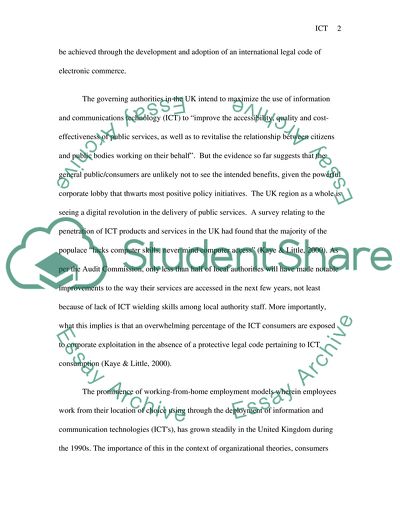Cite this document
(Competition in ICT Goods Services Coursework Example | Topics and Well Written Essays - 2000 words, n.d.)
Competition in ICT Goods Services Coursework Example | Topics and Well Written Essays - 2000 words. https://studentshare.org/information-technology/1713240-can-competition-alone-produce-the-best-outcomes-for-consumers-of-ict-goods-and-services-if-not-why-and-where-is-regulation-necessary
Competition in ICT Goods Services Coursework Example | Topics and Well Written Essays - 2000 words. https://studentshare.org/information-technology/1713240-can-competition-alone-produce-the-best-outcomes-for-consumers-of-ict-goods-and-services-if-not-why-and-where-is-regulation-necessary
(Competition in ICT Goods Services Coursework Example | Topics and Well Written Essays - 2000 Words)
Competition in ICT Goods Services Coursework Example | Topics and Well Written Essays - 2000 Words. https://studentshare.org/information-technology/1713240-can-competition-alone-produce-the-best-outcomes-for-consumers-of-ict-goods-and-services-if-not-why-and-where-is-regulation-necessary.
Competition in ICT Goods Services Coursework Example | Topics and Well Written Essays - 2000 Words. https://studentshare.org/information-technology/1713240-can-competition-alone-produce-the-best-outcomes-for-consumers-of-ict-goods-and-services-if-not-why-and-where-is-regulation-necessary.
“Competition in ICT Goods Services Coursework Example | Topics and Well Written Essays - 2000 Words”. https://studentshare.org/information-technology/1713240-can-competition-alone-produce-the-best-outcomes-for-consumers-of-ict-goods-and-services-if-not-why-and-where-is-regulation-necessary.


